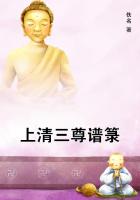Thus every action must be due to one or other of seven causes: chance, nature, compulsion, habit, reasoning, anger, or appetite. It is superfluous further to distinguish actions according to the doers' ages, moral states, or the like; it is of course true that, for instance, young men do have hot tempers and strong appetites; still, it is not through youth that they act accordingly, but through anger or appetite. Nor, again, is action due to wealth or poverty; it is of course true that poor men, being short of money, do have an appetite for it, and that rich men, being able to command needless pleasures, do have an appetite for such pleasures: but here, again, their actions will be due not to wealth or poverty but to appetite.
Similarly, with just men, and unjust men, and all others who are said to act in accordance with their moral qualities, their actions will really be due to one of the causes mentioned-either reasoning or emotion: due, indeed, sometimes to good dispositions and good emotions, and sometimes to bad; but that good qualities should be followed by good emotions, and bad by bad, is merely an accessory fact-it is no doubt true that the temperate man, for instance, because he is temperate, is always and at once attended by healthy opinions and appetites in regard to pleasant things, and the intemperate man by unhealthy ones. So we must ignore such distinctions. Still we must consider what kinds of actions and of people usually go together; for while there are no definite kinds of action associated with the fact that a man is fair or dark, tall or short, it does make a difference if he is young or old, just or unjust. And, generally speaking, all those accessory qualities that cause distinctions of human character are important: e.g. the sense of wealth or poverty, of being lucky or unlucky. This shall be dealt with later-let us now deal first with the rest of the subject before us.
The things that happen by chance are all those whose cause cannot be determined, that have no purpose, and that happen neither always nor usually nor in any fixed way. The definition of chance shows just what they are. Those things happen by nature which have a fixed and internal cause; they take place uniformly, either always or usually.
There is no need to discuss in exact detail the things that happen contrary to nature, nor to ask whether they happen in some sense naturally or from some other cause; it would seem that chance is at least partly the cause of such events. Those things happen through compulsion which take place contrary to the desire or reason of the doer, yet through his own agency. Acts are done from habit which men do because they have often done them before. Actions are due to reasoning when, in view of any of the goods already mentioned, they appear useful either as ends or as means to an end, and are performed for that reason: 'for that reason,' since even licentious persons perform a certain number of useful actions, but because they are pleasant and not because they are useful. To passion and anger are due all acts of revenge. Revenge and punishment are different things. Punishment is inflicted for the sake of the person punished; revenge for that of the punisher, to satisfy his feelings. (What anger is will be made clear when we come to discuss the emotions.)
Appetite is the cause of all actions that appear pleasant. Habit, whether acquired by mere familiarity or by effort, belongs to the class of pleasant things, for there are many actions not naturally pleasant which men perform with pleasure, once they have become used to them. To sum up then, all actions due to ourselves either are or seem to be either good or pleasant. Moreover, as all actions due to ourselves are done voluntarily and actions not due to ourselves are done involuntarily, it follows that all voluntary actions must either be or seem to be either good or pleasant; for I reckon among goods escape from evils or apparent evils and the exchange of a greater evil for a less (since these things are in a sense positively desirable), and likewise I count among pleasures escape from painful or apparently painful things and the exchange of a greater pain for a less. We must ascertain, then, the number and nature of the things that are useful and pleasant. The useful has been previously examined in connexion with political oratory; let us now proceed to examine the pleasant. Our various definitions must be regarded as adequate, even if they are not exact, provided they are clear.















